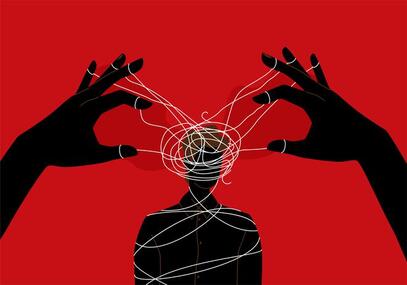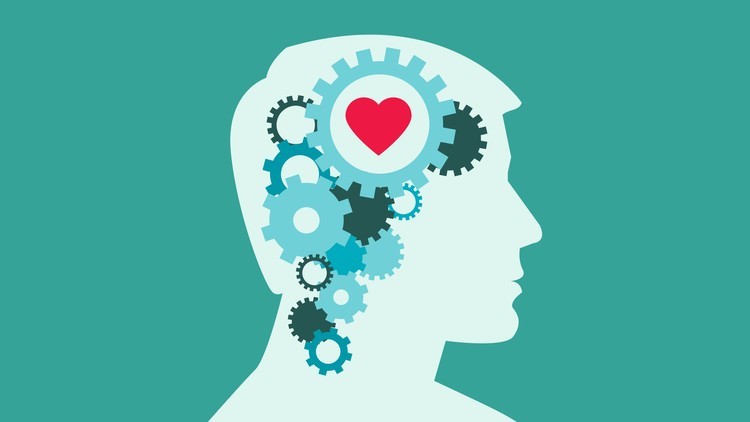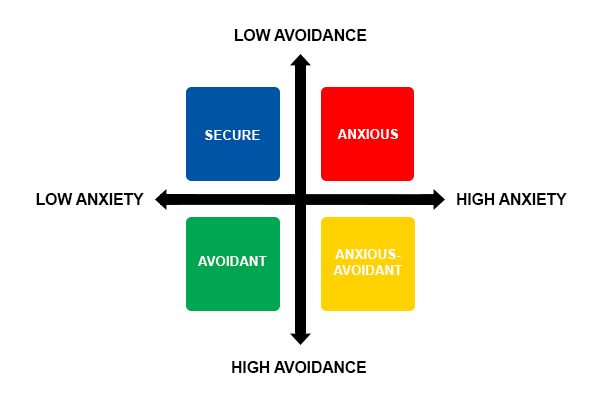|
Trauma can have a debilitating effect on a person's life. The raw emotions, intrusive thoughts, and maladaptive behaviors triggered by past experiences can create a prison of suffering. Fortunately, therapies like Eye Movement Desensitization and Reprocessing (EMDR) offer a powerful tool for breaking free.
Beyond Talk Therapy: A Different Approach Traditional talk therapy often delves into the "why" behind our issues, exploring the roots of our thoughts and behaviors. While valuable, it doesn't always address the raw emotional charge associated with trauma. EMDR takes a different path. We don't just talk about the event; we reprocess it, aiming to shift how the brain stores the memory. The Power of Bilateral Stimulation: The "eye movement" in EMDR isn't just a catchy name. It refers to various forms of bilateral stimulation, like side-to-side eye movements, hand taps, or auditory tones. While the exact mechanism remains under investigation, research suggests this stimulation activates the brain's natural processing and healing mechanisms. Unlocking the Vault: The first step is to create “grounding,” a safe space to explore the traumatic feelings. During EMDR sessions, you'll safely explore specific aspects of the traumatic memory, focusing on the most disturbing images, thoughts, and emotions. As you do, I'll guide you through the bilateral stimulation, creating a safe space for your brain to begin revisiting and reprocessing the experience. It's Not About Erasing Memories: It's important to clarify that EMDR doesn't erase memories. The events themselves remain, but their emotional sting is lessened. Imagine the memory like a locked file cabinet. EMDR helps reorganize that file, making it easier to access without being overwhelmed by the associated negativity. Transforming the Negative Narrative: As you reprocess the trauma, you'll also have the opportunity to develop a more empowering narrative about the experience. This could involve identifying positive self-beliefs, like "I am strong" or "I survived," that counter the negative self-talk often linked to trauma. Beyond Trauma: A Wider Scope: While EMDR was initially developed for trauma, its applications have expanded. It can be effective for phobias, anxiety, depression, and even grief. The core principle remains the same: addressing the underlying emotional charge associated with distressing experiences. Is EMDR for Everyone? Like any therapy, EMDR isn't a one-size-fits-all solution. It requires commitment and active participation. However, for many individuals struggling with the aftereffects of trauma, it can offer a beacon of hope and a path towards healing. If you're interested in exploring EMDR, speaking with a qualified therapist is the first step. Remember, you are not alone in your journey towards healing. Take The Next Step Take the next step in your recovery journey. Contact Scott Olds at (303) 817-8369 or email at [email protected] for a free phone or video evaluation. As a psychotherapist, I witness the crippling effects of anxiety firsthand. It manifests in countless ways, from social anxieties that keep people isolated to phobias that confine them, to generalized worries that cast a shadow over everyday life. While traditional talk therapy has proven effective, I've found a powerful ally in EMDR (Eye Movement Desensitization and Reprocessing) – a therapy that helps clients untangle the often-hidden roots of their anxiety.
Beyond Talk Therapy: Healing Beyond Words Unlike traditional therapy, where we delve into the details of the anxious thoughts and feelings, EMDR takes a different approach. First we create a safe space and focus on the present moment. Then we use bilateral stimulation (such as eye movements or rhythmic tapping) to activate the brain's natural processing system. This creates a safe space for clients to gently confront past experiences or negative beliefs that fuel their anxiety. Unlocking the Vault: Accessing and Reprocessing Painful Memories Imagine anxiety as a tangled knot. EMDR helps loosen that knot by accessing the underlying memories or beliefs that contribute to it. It's not about reliving trauma in graphic detail, but rather gently nudging the brain to reprocess these experiences in a healthier way. As clients revisit these memories with bilateral stimulation, they often report shifts in perspective, decreased emotional intensity, and a newfound sense of control. The Science Behind the Shifts: While the exact mechanism of EMDR remains under exploration, research suggests it impacts the brain's limbic system, which houses our emotional processing center. The bilateral stimulation is thought to activate the amygdala (responsible for fear) and the prefrontal cortex (responsible for logic and reason), facilitating communication and integration of past experiences. Not a Magic Wand, but a Powerful Tool: It's important to remember that EMDR is not a magic bullet. It requires active participation from the client and a trusting therapeutic relationship. However, when used appropriately, it can be a transformative tool for those struggling with anxiety. I've witnessed clients who were once consumed by anxiety begin to reclaim their lives, finding peace and empowerment they never thought possible. Is EMDR Right for You? If you're struggling with anxiety and are open to exploring new avenues for healing, consider talking to a therapist trained in EMDR. It's not a one-size-fits-all approach, but for many, it can be a powerful key to unlocking a life less tethered by anxiety. Remember, you deserve to live a life free from fear and worry. Take the first step towards emotional well-being today. Contact Scott today at (303) 817-8369 or email at [email protected] for a free phone or video call evaluation. As a psychotherapist, I've witnessed countless individuals battling the tempestuous waves of grief. While mourning is a natural process, sometimes the loss of a loved one can be intertwined with trauma, creating a double dose of heartache. This "traumatic grief" can leave you adrift in a sea of overwhelming emotions, clinging to distorted memories and struggling to find your way back to the shore of acceptance.
This is where Eye Movement Desensitization and Reprocessing (EMDR) takes center stage. Often hailed as a revolutionary tool for trauma treatment, EMDR can be a beacon of hope for those grappling with traumatic grief. Its unique approach bypasses the analytical, ruminative tendencies of talk therapy and instead taps into the brain's inherent capacity for healing. Imagine yourself trapped in a labyrinth of painful memories, each corner echoing with the anguish of loss. EMDR becomes the Ariadne's thread, guiding you through this maze. Here's how it works:
A Tailored Approach: The beauty of EMDR lies in its flexibility. It can be seamlessly integrated into various therapeutic approaches, making it suitable for a wide range of individuals and grief experiences. Whether you've lost a loved one to sudden death, a prolonged illness, or even natural disaster, EMDR can offer a path to healing. A Beacon of Hope: While grief is a universal human experience, traumatic grief can feel like a solitary burden. EMDR empowers you to break free from its isolating grip. It offers a roadmap out of the labyrinth of pain, leading you towards a future where the memory of your loved one holds not just sorrow, but also love, gratitude, and perhaps even a renewed sense of meaning. As a psychotherapist, I've seen firsthand the transformative power of EMDR in helping individuals navigate the turbulent waters of traumatic grief. If you're struggling with a loss that feels insurmountable, remember, there is hope. EMDR can be the lighthouse guiding you back to calmer waters, allowing you to embrace life with an open heart and find peace amidst the storm. For a free phone or video call evaluation, contact Scott at (303) 817-8369 or email at [email protected]. Psychotherapy offers several advantages over medication for treating anxiety:
Scott F. Olds is a psychotherapist who is located in Arvada, Colorado. He offers a free 30-minute phone or video consultation. Appointments can be made by calling (303) 817-8369 or emailing [email protected]. Gaslighting is a form of psychological manipulation in which one person makes another person doubt their perceptions, experiences, memories, or understanding of events that happened. It is a subtle and insidious form of abuse that can have a devastating impact on the victim's mental and emotional health.
Gaslighting can occur in any type of relationship, but it is particularly common in romantic relationships. This is because romantic partners often have a high level of trust and intimacy, which makes them more vulnerable to manipulation. Gaslighters typically use a variety of tactics to achieve their goals, including:
If you are in a relationship with someone who is gaslighting you, it is important to seek help from a qualified psychotherapist. A therapist can help you to understand what is happening to you, and they can provide you with support and guidance as you work to recover from the effects of gaslighting. Here are some tips for coping with gaslighting in a relationship:
It is also important to remember that you are not alone. If gaslighting is a problem in your relationship, therapy can help. Contact Scott at (303) 817-8369 or email at [email protected] for a free phone or video evaluation. I often work with clients who are struggling to set boundaries with a narcissist. Narcissists are people with a personality disorder that is characterized by a grandiose sense of self-importance, a need for admiration, and a lack of empathy for others.
Narcissists can be very difficult to deal with, as they often try to control and manipulate the people around them. They may also be very critical and demanding. It is important to remember that you cannot change a narcissist's behavior. However, you can set boundaries to protect yourself from their abuse. Here are some tips for setting boundaries with a narcissist:
Here are some additional tips for setting boundaries with a narcissist:
It is important to remember that you cannot change a narcissist. However, you can set boundaries to protect yourself from their abuse. By setting and enforcing boundaries, you are taking steps to protect your well-being. If you are struggling to set boundaries with a narcissist, please know that you are not alone. There are people who care about you and want to help. Please reach out to a friend, family member, therapist, or other support person for help. I can help. Call Scott at (303) 817) 8369 or email at [email protected] for a free phone or video evaluation. The Relationship Between Sensitivity and Boundary Issues
Sensitive people are often more attuned to the emotions of others and their surroundings. This can be a gift, but it can also make it difficult to set and maintain healthy boundaries. Here are some of the reasons why sensitive people may struggle with boundaries:
Here are some of the ways that boundary issues can manifest in sensitive people:
If you are a sensitive person and you struggle with boundaries, there are a few things you can do to improve the situation:
It's important to remember that you have the right to set boundaries. You don't owe anyone an explanation for why you need to set a boundary. And you don't have to apologize for setting a boundary. Setting boundaries is a way of taking care of yourself and protecting your well-being. Here are some additional tips for sensitive people who struggle with boundaries:
Setting boundaries can be difficult for anyone, but it's especially challenging for sensitive people. However, it's important to remember that you have the right to set boundaries, and that doing so is essential for your well-being. Remember, seeking help is a courageous step towards a more balanced and fulfilling life. You don't have to face these challenges alone. If you're ready to embark on a journey of self-discovery, growth, and healthier relationships, I invite you to schedule a confidential consultation with me. Together, we can work towards a happier, more harmonious life. Take the first step towards healing today. Contact Scott Olds at (303) 817-8369 or email at [email protected] for a free and confidential evaluation by phone or video. Trauma is a deeply distressing or disturbing experience that can have a lasting impact on a person's life. It can affect a person's physical and mental health, their relationships, and their ability to cope with stress.
One of the ways that trauma can impact a person is by affecting their emotional intelligence. Emotional intelligence is the ability to understand and manage one's own emotions, as well as the emotions of others. When a person experiences trauma, they may develop unhealthy coping mechanisms that can damage their emotional intelligence. For example, a person who has experienced abuse may learn to suppress their emotions in order to cope with the pain. This can lead to difficulty identifying and expressing emotions, which can make it difficult to build healthy relationships and manage stress. Another way that trauma can impact emotional intelligence is by creating learned patterns of behavior. These patterns are often developed in childhood as a way to cope with the trauma. For example, a child who is neglected may learn to become self-reliant and independent. This pattern of behavior can be helpful in some situations, but it can also make it difficult to form close relationships as an adult. A psychotherapist can help a person who has experienced trauma to improve their emotional intelligence and break free from learned patterns of behavior. This can be done through a variety of techniques, such as:
By working with a psychotherapist, a person who has experienced trauma can learn to heal and rebuild their emotional intelligence. This can lead to a better understanding of themselves and their emotions, as well as the ability to build healthy and fulfilling relationships. In addition to the techniques mentioned above, a psychotherapist may also use other approaches, such as:
The best approach for a particular individual will depend on the nature of their trauma and their individual needs. A psychotherapist can help to assess the best approach and provide the support and guidance that the person needs to heal. If you or someone you know has experienced trauma, it is important to seek professional help. A psychotherapist can help you to understand and heal from the trauma, and to improve your emotional intelligence and break free from learned patterns of behavior. For help overcoming trauma, contact Scott Olds at (303) 817-8369 or email at [email protected] for a free phone or video evaluation. Guilt and grief are two of the most common emotions that people experience after a loss. Guilt can be caused by a variety of factors, such as feeling responsible for the loss, wishing that you had done something differently, or feeling like you didn't love the person enough. Grief is the natural emotional response to loss, and it can manifest itself in a variety of ways, such as sadness, anger, anxiety, and loneliness.
While guilt and grief are normal emotions, they can be difficult to cope with. If you are struggling to overcome guilt and grief, there are a few things that you can do:
Here are some additional tips that a psychotherapist might use to help a client overcome guilt and grief:
Call Scott at (303) 817-8369 or email at [email protected] to see if grief counseling is right for you. How the Relationship Style We Learned from Our Parents Influences Us as Adults in a Relationship9/3/2023
As children, we learn about relationships by watching our parents interact with each other. We see how they communicate, how they resolve conflict, and how they show love and affection. These observations become our template for how we expect relationships to work. If our parents had a healthy, loving relationship, we are more likely to have secure attachment styles as adults. This means that we feel confident in our ability to form close relationships and that we expect to be loved and supported by our partners. However, if our parents had an unhealthy or conflictual relationship, we are more likely to have insecure attachment styles. This means that we may have difficulty trusting others, may be afraid of abandonment, or may have a hard time expressing our emotions in relationships. Of course, our relationship style is not determined solely by our parents. Our own experiences and personality also play a role. However, our parents' relationship style can have a significant impact on how we approach our own relationships as adults. Generational Influence The generational influence on relationship styles is a complex topic. There are many factors that can contribute to how we learn about relationships from our parents, including their own attachment styles, their cultural background, and the historical context in which they grew up. For example, people who grew up in families where there was a lot of conflict may be more likely to have insecure attachment styles. This is because they may have learned that relationships are inherently unstable and that conflict is inevitable. On the other hand, people who grew up in families where there was a lot of love and support may be more likely to have secure attachment styles. This is because they may have learned that relationships are a source of comfort and security. It is also important to note that the generational influence on relationship styles can be passed down from generation to generation. This is because children learn about relationships from their parents, who learned about relationships from their parents, and so on. As a result, it is not uncommon for people to find themselves repeating the same relationship patterns that their parents did. This can be a challenge to break, but it is possible with awareness and effort. Here are some specific ways that the relationship style we learned from our parents can influence us in our adult relationships:
Remember, you are not doomed to repeat the relationship patterns you learned from your parents. With awareness and effort, you can create healthy, fulfilling relationships in your own life. Here are some additional tips for breaking the cycle of unhealthy relationship patterns:
If you need help with your relationship, contact Scott Olds at (303) 817-8369 or [email protected].
|
AuthorScott F. Olds, Psychotherapist Categories
All
Archives
February 2024
Call Scott at
|
Package Discount: Get a 4-session package for 10% off! Call for details.
I offer sessions in the office, in an open space (weather permitting), by phone, and by video sessions for your safety and convenience. Take a deep breath and give me a call at (303) 817-8369 or email me at [email protected].
Confidential: I am HIPAA compliant, so your privacy is protected.
Crisis Information: If you are in crisis, call Colorado Crisis and Support at 844-493-8255 or the national Suicide and Crisis Lifeline at 988 for 24/7 for help in an emergency. These lifelines provide free and confidential support for people in distress, prevention, and crisis resources for you or your loved ones.
(303) 817-8369
[email protected]
10960 W. 65th Way
Arvada, Colorado 80004
My office is in Arvada, Colorado.
Privacy Policy














